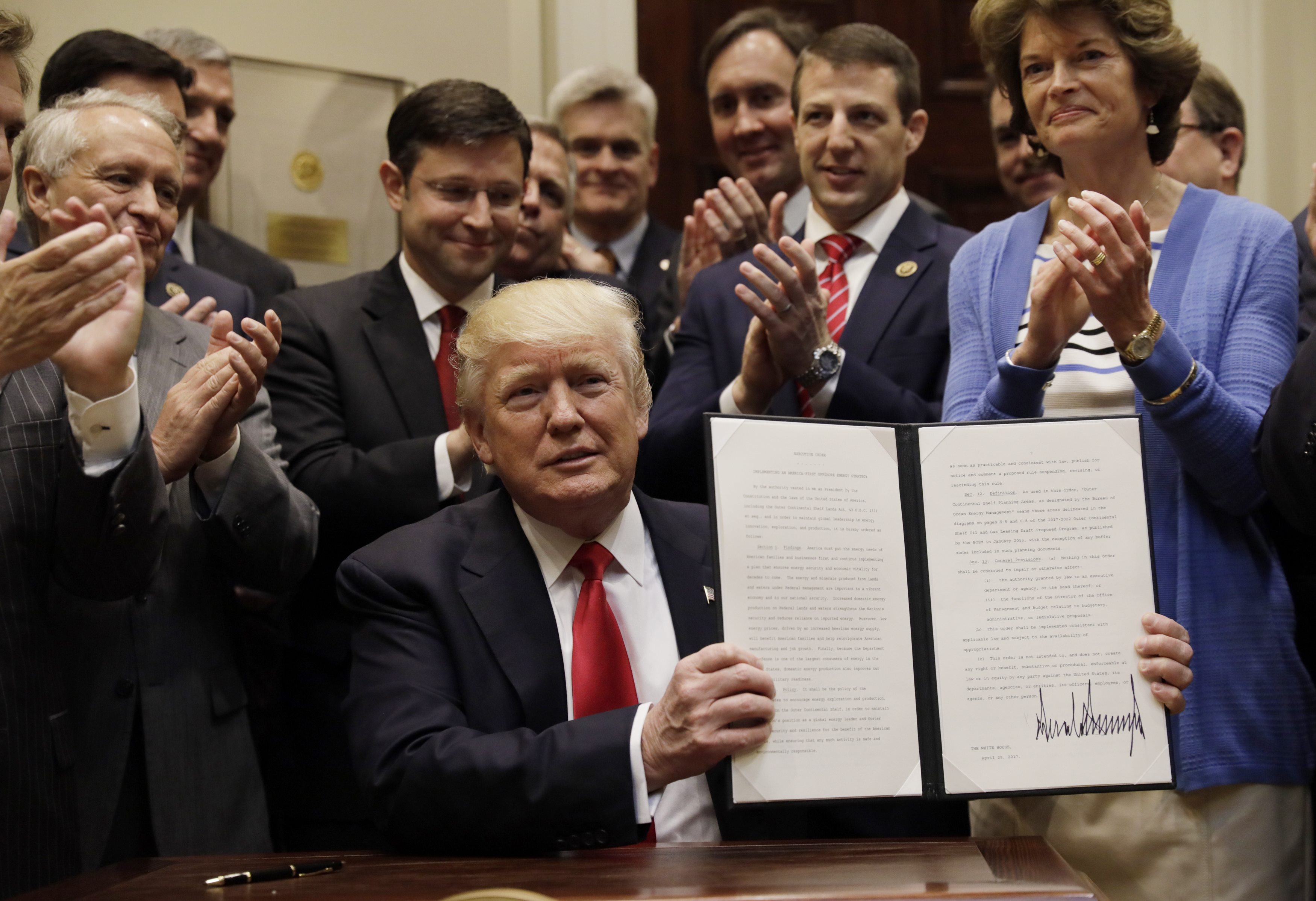Green groups sue over Trump executive order on Arctic drilling
WASHINGTON — Ten environmental and Alaska Native groups sued the federal government Wednesday over President Donald Trump’s executive order aimed at rolling back regulations that restrict and ban drilling, including offshore of Alaska’s Arctic.
The groups, led by League of Conservation Voters, Natural Resources Defense Council and Earthjustice, filed the complaint in federal district court in Alaska on Wednesday, just days after Trump’s April 27 order, which he signed surrounded by members of Alaska’s congressional delegation.

The groups argue that the April 28 executive order exceeded Trump’s authority under federal law.
[Trump pushes to expand offshore drilling in the Arctic]
In December, then-President Barack Obama issued orders closing off areas of the Arctic and Atlantic oceans to oil and gas drilling, under the authority of the Outer Continental Shelf Lands Act.
The green groups argue that the law doesn’t have a provision explicitly allowing Trump to reverse Obama’s order, and it is consequently illegal.
“These areas have been permanently protected from the dangers of oil and gas development. President Trump may wish to undo that, and declare our coasts open for business to dirty energy companies, but he simply lacks the authority to do so under the law,” said Niel Lawrence, NRDC senior attorney.

Trump’s “executive order attempting to undo President Obama’s historic protection of the Arctic and Atlantic oceans from drilling is part of a plan to sell off our oceans to polluting corporations at the cost of the safety of coastal communities, the fate of marine wildlife and our children’s future,” said Earthjustice president Trip Van Noppen.
Other groups included in the lawsuit are Sierra Club, Alaska Wilderness League, Defenders of Wildlife, Northern Alaska Environmental Center, Resisting Environmental Destruction on Indigenous Lands, Center for Biological Diversity, Greenpeace and The Wilderness Society.
The Arctic Energy Center, an oil industry group, issued a statement arguing against the rationale of the lawsuit.
“There’s no precedent to show a ban should be permanent, there is nothing to suggest a subsequent White House cannot overturn the decision, and that the last administration’s application of the rule conflicts with the act’s wider specification to ensure (the Outer Continental Shelf) is ‘available for expeditious and orderly development,’” said spokesman Oliver Williams.